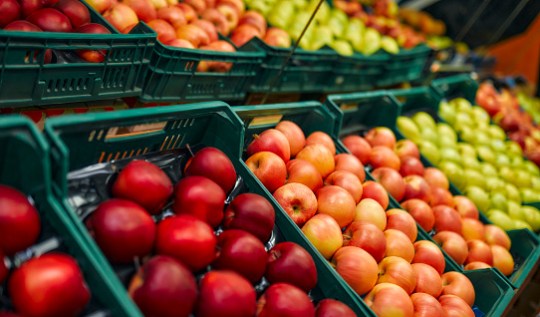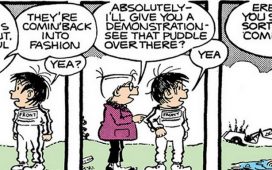No matter how carefully you curate your shopping list, you seem to always end up leaving the supermarket spending more money than you planned.
But your expensive weekly food shop isn’t just because it’s so hard to resist those two for one deals.
A consumer psychologist has revealed a sneaky strategy that supermarkets use to get you to spend more – and they rely on your iffy maths skills to do it.
It’s a long held belief that fruit and vegetables sold together in packaging are more expensive than loose items, but this isn’t always true.
And, to confuse you, supermarkets do their best to make it unclear just how much you’re paying, per item.
Dr. Cathrine Jansson-Boyd from Anglia Ruskin University tells Metro.co.uk: ‘To ensure that people can’t instantaneously see what the price difference is, the packaged items may be priced per item whilst the loose ones might be displayed in grams.
‘If items are not directly comparable, people assume that what they originally thought (that packed goods are more expensive) is correct.
‘Hence, consumers can end up spending more than they intended.’
As such, Cathrine warns to look at labels carefully, and to take a slower pace as you shop.
‘Take your time in supermarkets,’ she says.
The weird reason you never see clocks in shopping malls
Shopping centres are one of those places where time seems to evaporate, and where a twenty-minute in-and-out trip could easily turn into an hours-long spending sesh.
There’s actually a clever reason why clocks are so scarce in shopping centres – and it’s a little trick called ‘temporal distortion.’ AKA, the act of changing a person’s perception of time.
‘The absence of clocks in shopping centres is a meticulously crafted strategy, deeply anchored in consumer psychology,’ psychologist Laura Geige previously told Metro.co.uk.
‘[It’s] designed to extend the duration of your visit and consequently, your expenditure.
‘Shopping centres are engineered to be self-contained universes where the concept of time is subtly manipulated. The deliberate omission of clocks is a strategic element of environmental psychology, aiming to disengage you from the passage of time.’
And, as we forget about the time whilst we’re shopping, we’re encouraging a ‘deep involvement’ in the shopping experience. We can’t look away.
‘The longer you remain in this timeless state, the more likely you are to make additional purchases, driven by a disconnection from your external time commitments and schedules,’ Laura explains.
‘Most people only spend around 30 minutes in there, and that means that they may spend around 20 seconds on each product category. That is simply not enough time to take in all the information.
‘However, if people spend more time in store, it will allow shoppers to carefully think about price – and having a calculator may help!’
If you’re feeling fooled, try not to be too harsh on yourself.
From bigger shopping baskets and trolleys (the larger they are, the more you’ll add in), to putting pricier items at eye level, supermarkets employ lots of different marketing strategies to get customers to stay in store longer and, crucially, to spend more money.
Do you have a story to share?
Get in touch by emailing MetroLifestyleTeam@Metro.co.uk.
MORE : M&S shoppers go wild for £45 trainers that are ‘like a well-known brand at half the price’
MORE : NYX have dropped a new £6.99 colour correcting concealer that gives a ‘flawless finish’
MORE : Beer, bread and biscuits set to get more expensive due to relentless wet winter
This site is protected by reCAPTCHA and the Google Privacy Policy and Terms of Service apply.
















